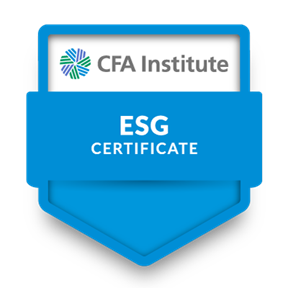AmplifyME Boot Camp
Students on our Master programmes can gain invaluable practical experience of the factors that drive today’s financial markets as part of their Master course. AmplifyME, a global financial trading and training company, in collaboration with Strathclyde Business School, delivers a week-long Boot Camp. This provides students with the opportunity to experience a real-life trading simulation, covering multiple roles in the process.
AmplifyME is a leading provider of training programmes to the financial industry, and they offer our students the same analyst level practical training they deliver to their clients. AmplifyME’s clients include Bank of China, Goldman Sachs, HSBC and Bank of America.
Read more about the finance simultion boot camp.
Financial Modeling Institute (FMI)
The University of Strathclyde has partnered with the Financial Modeling Institute (FMI) to provide students access to the FMI’s Foundations program, as a supplemental learning resource. Successful student candidates will receive a digital badge from the Institute which can be posted to LinkedIn and social media.
The Financial Modeling Institute promotes awareness, excellence, and discipline in financial modeling through its international accreditation programs. The FMI Foundations program provides fundamental financial modelling knowledge including theory and concepts to students.
MSc Finance
Over the last few decades, the finance function has changed more dramatically than any other area of business. Capital markets around the world have been liberalised, competition has increased, technology has evolved rapidly and national markets must be considered in an international context. These changes have led to an increased demand for well-educated finance specialists who are able to respond to the challenges and complexities of financial markets.
The MSc Finance has an international flavour, both in the range of topics studied and also in the international spread of students which the course attracts. Providing a good balance between accounting and finance theory and practical skills and knowledge, this course provides an excellent foundation for basis a career in finance.
This course is suitable for those intending to develop their careers in finance, broadly defined as:
- corporate finance
- security analysis
- portfolio management
- options and futures
- treasure management
- the functioning of financial institutions and markets
- financial decision-taking in the public sector.
Further information and application
MSc Sustainable Finance
It is vital to explicitly align finance with sustainability in order to successfully tackle the environmental and societal challenges we face. Incorporating sustainability considerations in almost every dimension of investment and financing strategies is pivotal for the survival and sustainability of business and investment communities.
The purpose of the MSc Sustainable Finance is to train finance professionals with a vision of social and environmental responsibility and a clear understanding of the challenges, opportunities, and applications of sustainable finance.
Further information and application
 |
Our MSc Sustainable Finance recognises essential topics from the Certificate in ESG Investing from CFA Institute. This professional certificate offers both practical application and technical knowledge in the field of ESG investing. |
|---|
MSc Financial Technology
Our MSc Financial Technology (FinTech) aims to provide students with an understanding of the various ways in which technology can be used to automate and improve upon existing processes in the financial sector.
The constituent modules of this MSc programme are delivered by lecturers and researchers from across three departments: Accounting & Finance, Management Science, and Computer Science. This ensures that students’ exposure to fundamentals of programming and data analysis will be underpinned by important theories and concepts in finance and business information systems. As such, students will develop both a technical and strategic approach to FinTech processes.
This is a transitional postgraduate degree and we accept students from a variety of background who want to embark on a career is this area. You will gain a comprehensive skill set using a blended learning approach that combines theory with exposure to industry practice.
Further information and application
MSc Investment & Finance
Building on the core of the MSc Finance curriculum, this course is designed for those who intend to develop careers in areas such as security analysis, portfolio analysis and investment management. The course is widely regarded as vocationally relevant and intellectually challenging. It will provide you with a rigorous grounding in the theory of finance but also covers the various techniques and analytical tools widely employed by investment professionals in practical decision-taking.
The syllabus has been developed with the requirements of the Chartered Financial Analysts Institute (CFA Institute - the primary professional body) in mind and the course provides a good starting point if you are seeking CFA qualification.
Further information and application
MSc Accounting, Finance & Data Analytics
This course is for graduates looking to broaden their previous study of accounting or for those already working in accounting looking to expand their knowledge to include the latest developments in the profession.
On the programme you'll:
- understand the role of accounting in business
- study financial management and security markets
- learn to apply analytical techniques to big data for business decision-making
- gain invaluable practical experience of the factors that drive today’s financial markets at AmplifyME Boot Camp
Further information and application
We are a member of the CFA Institute University Affiliation Program
![]()
As an Affiliated University of the CFA Institute, our classes cover a significant portion of the CFA Program Candidate Body of Knowledge (CBOK) - including the Code of Ethics and Standards of Professional Conduct. Our curriculum is closely tied to the practice of investment management and is helpful to students preparing for the CFA Program exams.
Interdisciplinary programmes
MSc Economics & Finance
Appreciating the interaction between the disciplines of Economics & Finance is now critical to understanding the world we live in and training in these subjects is essential for those hoping to work in the public or private sector as economists, analysts or consultants.
The aim of the programme is to produce highly skilled professionals who can analyse, understand, and explain the complex economic and financial issues that arise in a globalised world.
Further information and application:
MSc Finance & Management
The Departments of Accounting & Finance and Strategy & Organisation have developed this degree to give participants a competitive edge in their future business career. The programme is equally suitable for those embarking on their first professional business role and those with some business experience who are looking to progress their career in a finance and/or management-related role.
The programme offers a thorough grounding in financial and management principles. The course will develop an understanding of how organisations work and the skills needed to operate effectively within them. The technical and analytical skills of finance and management will also be developed. Understanding of both subject areas will be applicable to roles in any organisation.
Further information and application
MSc Quantitative Finance
Globally, financial tools, products and software are becoming increasingly complex and sophisticated, and there's a need for the finance industry to self-regulate as it witnesses unprecedented growth. Market-aware finance graduates, who can clearly demonstrate an understanding of the mathematical models used to develop these products and their computer implementations, will be much in demand by international organisations.
This cross-faculty programme draws on expert academic input from three departments – Accounting & Finance, Mathematics & Statistics, and Computer & Information Sciences. The curriculum provides a good balance between finance and mathematical theory, computer implementations of this theory, and practical skills and knowledge.
Further information and application
Entry Requirements
UK students are required to have a good honours degree (2.1 preferred) or equivalent (in economics, accounting, business studies, maths, statistics, or computing) or an equivalent professional qualification. For the MSc in International Accounting & Finance, the degree course should include some study of accounting.
Overseas students' qualifications will be judged on an equivalent basis. Further information can be found at Strathclyde Equivalence
See separate course pages for individual entry requirements which may vary slightly.
Please note there's no need to make an application for all taught postgraduate courses from the Department of Accounting & Finance. It's feasible to transfer to one of the department's other programmes should you wish to do so after commencement of your studies. You should therefore choose one course for application purposes.
Exemptions towards Chartered Management Accountant Qualification
All four of our MSc programmes are accredited by the Chartered Institute of Management Accountants (CIMA). Exemptions will be awarded from CIMA’s professional examinations, according to the route taken through the MSc. For more details see CIMA’s own web site.
Research students
The Department of Accounting & Finance provides research training in both accounting and finance to prepare graduates to pursue demanding careers as academics, professional researchers in the financial services sector or managers of business, government and professional organisations.
Further information and application:



